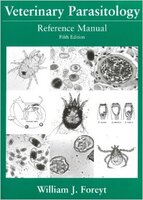Sadly, ivermectin is not an effective gapeworm treatment. I can show you the studies if you are interested.The drug ivermeticin is often used to control gapeworm infection in birds.
Per this veterinary textbook, gapeworm treatment using Safeguard for goats or Safeguard or Panacur paste is 0.14 ml per pound of body weight for *five* consecutive days, so a seven pound chicken needs 0.95 ml (okay to round up to 1 ml) five days in a row.
The dose amount on the label is for goats and is no where near enough to treat worms that waterfowl and poultry get.

A pea size amount is only 25 mg. This pea size amount is equal to 0.25 ml of the liquid. IMO, this is too low a dose for poultry.I successfully treated roundworm infection in my flock last Feb with pea sized doses of fenbendazole (trade name safe-guard), which is also used as equine dewormer. chickens need only tiny pea size dose-
Save your money and have routine fecals instead, DE is not an effective de-wormer.So, If you want a more natural approach to deworming please use food grade diatomaceous earth (DE) in your chickens dust bath (1 part to 3 parts mixed potash/sand/topsoil) and also add about 2 tablespoons DE to 1 pound feed and mix well. Do this every 2 wks until you see improvement.
Last edited:

 My background is poultry microbiology; I’ve personally never dealt with gapeworms (thankfully), only common roundworms (1 young pullet presenting symptoms but I treated everyone to be safe). I used 25mg safeguard equine paste pea size orally to treat my small breed chickens to err on side of caution, as they were not yet 2yrs old during treatment. I was scared to overdose. I retreated in 10 days to catch any newly hatched roundworms.
My background is poultry microbiology; I’ve personally never dealt with gapeworms (thankfully), only common roundworms (1 young pullet presenting symptoms but I treated everyone to be safe). I used 25mg safeguard equine paste pea size orally to treat my small breed chickens to err on side of caution, as they were not yet 2yrs old during treatment. I was scared to overdose. I retreated in 10 days to catch any newly hatched roundworms.